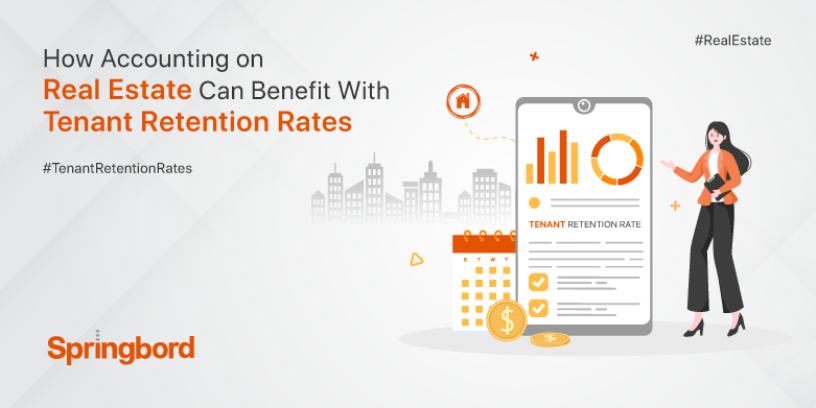 Read time 3 min
Read time 3 minIntroduction:
In commercial Real Estate agencies, the agents have to manage a host of activities like keeping up with clients, managing finances, lease administration, and making business networks. Success in Real Estate not only depends on the ability to create contacts and close sales but also on following the best administrative practices.
Accounting plays a vital role in the management of any business and real estate is no different. It requires the maintenance of accurate reports and records, throughout all processes of buying, selling, and leasing.
What is real estate accounting?
When the concepts of accounting are used in real estate for the purpose of property management, the process is called real estate accounting. Real estate accounting is used for recording and tracking all purchase, sales, and lease transactions of property.
Let us now understand why real estate accounting is important:
- Understanding the concepts of real estate accounting will help businesses to maintain their books of accounts and monitor their growth potential.
- This helps the real estate agents to analyze their returns from various properties and analyze which property is performing well.
- Additionally, they can compare their financial performance over time, calculate their tax returns, estimate their cash flow, and make timely bill payments.
- Another lesser-known advantage of real estate accounting is that if you are a property manager/owner, following real estate accounting can also help you increase tenant retention rates.
Before diving deeper into this topic let us first understand what is tenant retention rate and how it is calculated.
What is Tenant Retention Rate?
The tenant retention rate tells us how frequently tenants change for a specific property. The tenant retention rate is one of the biggest factors in determining the profitability of the rented property.
When renting a property there are several costs involved like the loss of rent during the vacancy period, regular up-gradation and maintenance costs, marketing costs, cost of screening applicants, etc.
Calculating the tenant retention rate:
- Collect the data on the number of tenants who moved in and out over a 12-month period.
- Divide the number of tenants who moved out by the number of tenants who moved in and then multiply it by 100.
Effect of Real Estate Accounting on Tenant Retention
Let us now understand how real estate accounting affects the tenant experience:
While there are several factors that influence the tenants’ experience and their desire to stay in a property, here we will specifically talk about how one can increase the tenant retention rates using ethical accounting standards.
- Your tenants love transparency when it comes to accounts management. If the payments they have made are not correctly posted to their account, they will probably not be happy.
- If your tenants come across any surprise fees, or balance miscalculations from your end, this will also create a negative impression in the minds of tenants.
- Since most property owners use online ledgers, provide your tenants with access to these ledger accounts and keep these ledgers updated at all times.
- An accurate ledger will mean that the tenant has lesser reasons to question you and there will be fewer chances of incorrect payments.
- Accuracy instills trust in the relationship between the property owner and the tenant, this is crucial for improving the retention of tenants.
- Ensure that the tenants do not receive any undue notice of the amount they do not owe you, as this is unprofessional and breaks the tenant’s trust.
Common Accounting Mistakes
Here are some common accounting mistakes to avoid to reduce tenant turnaround:
- Unrecorded payments or duplication of payment entry
- Showing incorrect balance or fees
- Recording payments in a wrong ledger
- Applying wrong or hidden charges
- Inaccurate late fees
Conclusion:
If you are struggling with Real Estate bookkeeping and lease administration it is best to take help from industry experts. Sprinbord, offers lease administration and audit services to its real estate clients, to ensure their portfolio optimization and risk mitigation. Not taking adequate measures for real estate accounting can result in the underutilization of assets and missing on great business opportunities.
Our accounting experts will help the real estate owners streamline their operations and reduce their operational costs. We comply with the lease accounting and regulatory standards such as FASB and IASB.
Our lease administration services can be of great help to retail managers, commercial real estate owners, and real estate investment trusts (REIT). Whether it is a commercial property, residential property, or office space, we help the real estate players plan strategically and cut costs. To learn more about our offerings and services please visit our website







